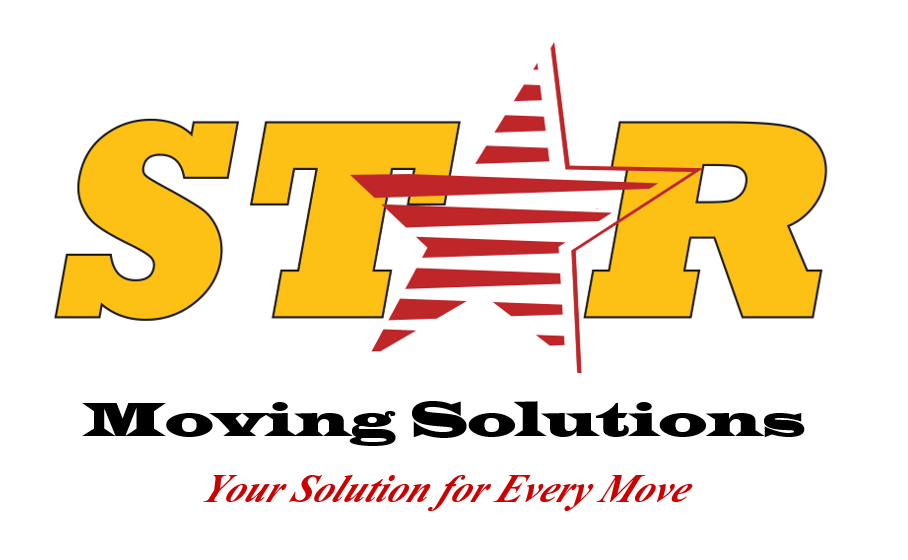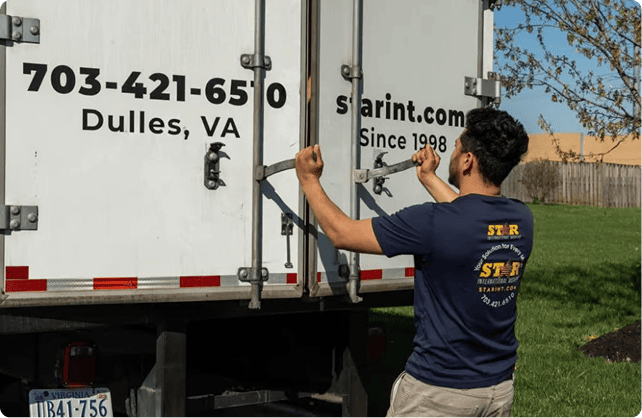Choosing the right international moving services provider is the single most important decision for your relocation. It’s the difference between a seamless transition and a stressful, costly ordeal. Transporting belongings across borders presents unique challenges, from complex logistics to customs clearance.
As a global leader in international relocations, our team at Star International has guided thousands of clients through this process. We’ve identified common, avoidable mistakes that customers often make. This guide will help you navigate the process, avoid expensive pitfalls, and ensure your move is a success from start to finish.
Mistake 1: Misunderstanding Your Service Options
Selecting the wrong type of service can lead to budget overruns and logistical nightmares. Before you commit, it’s crucial to understand the key differences between your options.
Full-Service vs. Self-Managed Moves Your first decision is the service model. A full-service international mover, like Star International, manages every detail. Our teams professionally pack, load, ship, handle customs clearance, and unpack at your new home. This end-to-end solution offers the highest level of security, convenience, and peace of mind.
Self-service options may appear cheaper upfront, but they place the burden of packing, logistics, and customs compliance squarely on you. Any damage, delays, or errors often lead to unexpected costs that erase those initial savings. A full-service move includes comprehensive insurance options for total protection.
When to Choose Air Freight vs. Sea Freight Your transit mode is a balance of speed and cost.
- Air Freight is the fastest option, ideal for essential items you need immediately (typically 1-2 weeks).
- Sea Freight is the most economical for larger shipments but has a longer transit time (often 4-8 weeks, depending on the route).
We often help clients create a blended plan, shipping essentials by air and the bulk of their household goods by sea.
Understanding Container Options: FCL vs. LCL For sea freight, you’ll choose between:
- Full Container Load (FCL): You get an exclusive 20ft or 40ft container. It is sealed at your residence and opened at your destination, offering maximum security.
- Less than Container Load (LCL): You share container space with other shipments and pay only for the volume you use.
LCL is often best for smaller shipments, while FCL becomes more cost-effective as your volume increases. An experienced mover will provide a detailed cost-benefit analysis for your specific shipment.
Mistake 2: Underestimating the Total Cost
A common shock for customers is a final bill that far exceeds the initial quote. This is often due to “hidden” charges not included in a low-cost estimate. A transparent quote from a reputable mover should account for all potential variables.
Port Charges, Taxes, and Duties These are unavoidable costs that include:
- Terminal Handling Charges (THC): Fees for loading and unloading at both origin and destination ports.
- Customs Duties & Taxes: While many countries allow duty-free import of personal household goods, the rules vary significantly.
- Inspections & Demurrage: Random customs inspections can incur extra fees. If your container is delayed at port, you may face daily “demurrage” (container rental) charges.
Seasonal Pricing and Demand Moving is a seasonal industry. The peak season (typically summer in the Northern Hemisphere) sees higher demand and, consequently, higher rates. If your timeline is flexible, moving during the off-season can offer significant savings.
Overlooking Insurance and Storage Costs Basic liability coverage is minimal. We strongly recommend all-risk transit insurance based on the full replacement value of your goods at your destination. Under-insuring is a major and common risk. You may also need temporary storage at your origin or destination, which should be factored into your budget.
Mistake 3: Subpar Packing and Documentation
Poor packing and inventory management can derail an international move. These oversights create major headaches and unexpected costs.
Using Low-Quality Packing Materials Ocean freight exposes your belongings to significant stress, including motion, humidity, and temperature changes. Standard moving boxes are not sufficient.
Professional international movers use export-grade materials, including double-wall corrugated cartons, specialized wrapping to protect against moisture, and industry-standard padding to prevent shifting. Using professional packers is the best way to ensure your items are protected for the journey.
Inaccurate Labeling and Inventory A simple “Kitchen” label is not enough. For customs, every box must be numbered and linked to a detailed packing list (inventory). This list must detail the contents of each box. This inventory is not just for organization; it is a critical legal document for customs clearance and is essential for any potential insurance claim. Our Star International crews create this detailed, itemized inventory as they pack, ensuring accuracy and compliance.
Mistake 4: Ignoring Customs Regulations
Customs is often the biggest variable in any international move. Each country has complex, often-changing rules that can catch even seasoned travelers off guard.
Commonly Restricted or Prohibited Items Every country bans or restricts specific items. This goes beyond firearms and narcotics. It often extends to common household items like:
- Cleaning supplies and aerosols
- Alcohol and tobacco (beyond certain limits)
- Perishable foods, houseplants, and seeds
- Perfumes and batteries
Assuming an item is allowed can lead to fines, seizure, or the destruction of your shipment.
Missing or Incorrect Documentation The most common cause of customs delays is incorrect or incomplete paperwork. You will need a complete inventory, identification, and specific customs forms for your destination country. Shipping a vehicle requires its own set of import permits and title documents.
Not Using a Customs Expert This is where a professional international mover provides its greatest value. An expert partner like Star International understands the specific documentation and regulations for your destination. We check your paperwork before your shipment leaves, manage the customs clearance process on your behalf, and resolve any issues that arise, preventing costly delays and fees.
Conclusion: Trust the Experts for a Seamless Move
An international relocation is a major life event. The complexities of logistics, customs, and packing go far beyond a domestic move. As this guide shows, small oversights in service selection, budgeting, or compliance can lead to significant stress and expense.
Your success begins with choosing the right partner. At Star International, we leverage our global network and decades of experience to manage every detail. We provide transparent, comprehensive quotes and expert guidance to navigate these common pitfalls.
While a DIY approach may be tempting, professional expertise is essential for a secure and successful international move. We recommend planning at least three to six months in advance. Contact our team today for a consultation to ensure your relocation is seamless from start to finish.
Frequently Asked Questions (FAQs)
Q1. What’s the difference between full-service and self-managed international moves? A: Full-service movers, like Star International, manage the entire process: expert packing, shipping, customs clearance, and unpacking. Self-managed moves require you to handle most of the logistics, which can lead to errors and hidden costs.
Q2. How can I avoid hidden fees when moving internationally? A: Work with a reputable mover that provides a transparent, all-inclusive quote. Be sure to ask about port charges (THC), potential customs duties, seasonal rate changes, and the cost of all-risk transit insurance. A low-ball quote almost always omits these critical expenses.
Q3. Why is professional packing so important for an international move? A: International shipments face unique stresses from motion and humidity. Professional packers use export-grade, heavy-duty materials and proven techniques to protect your goods. This is also critical for creating the detailed inventory list required by customs.
Q4. How do I ensure my belongings clear customs smoothly? A: The best way is to hire an experienced international mover. They act as your customs expert, ensuring you have the correct documentation, that you aren’t shipping prohibited items, and can resolve any issues that arise during the clearance process.
Q5. Should I choose air freight or sea freight for my move? A: It depends on your timeline and budget. Air freight is fast (1-2 weeks) but more expensive, making it ideal for essentials. Sea freight is more economical for your main household shipment but takes longer (4-8+ weeks). Most clients use a combination of both.






